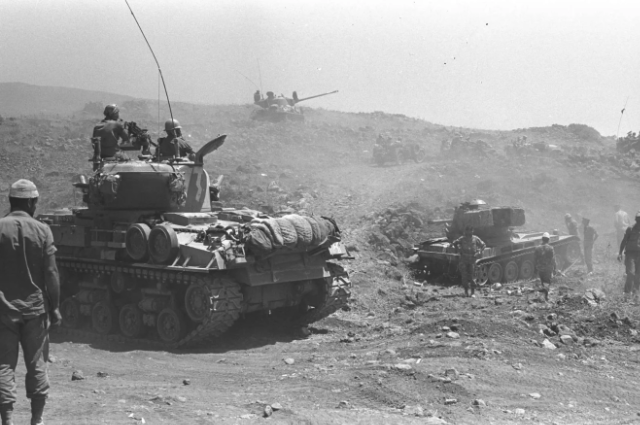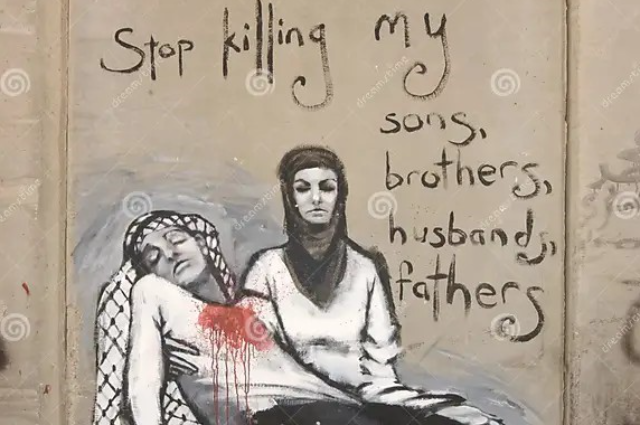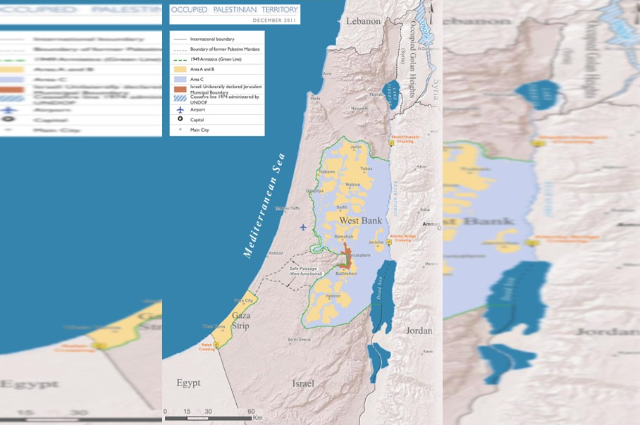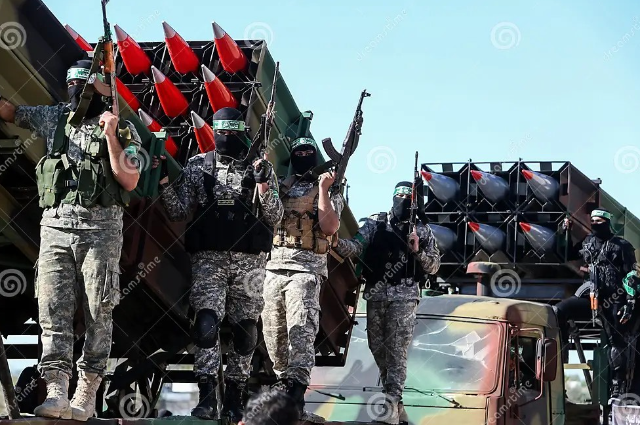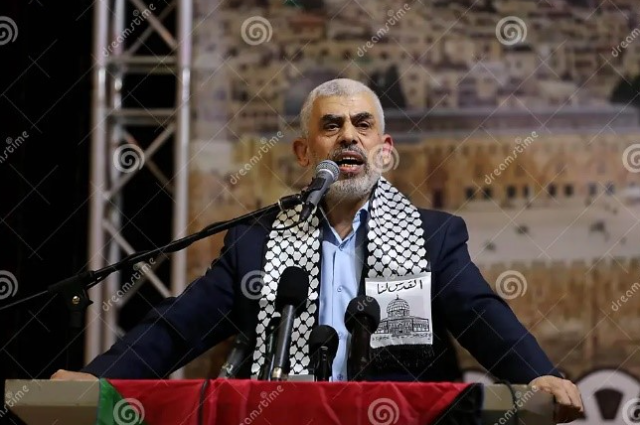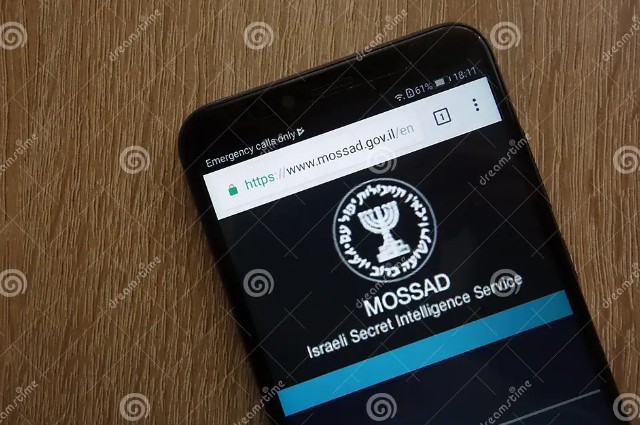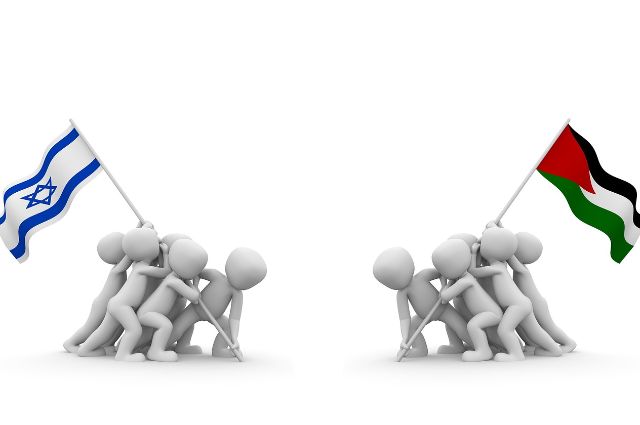
Image by Tumisu from Pixabay
Introduction and Background
On October 7, 2023, militants from the Gaza Strip, led by the Palestinian Sunni Islamist group Hamas, which is designated as a foreign terrorist organization by the United States, carried out a series of unexpected attacks on Israel using land, sea, and air forces. These attacks specifically targeted both Israeli military installations and civilian areas, occurring during the final Jewish high holiday.
Remarkably, this took place just over 50 years after the Egypt-Syria surprise attack that triggered the 1973 Yom Kippur War. Hamas is known to receive a substantial amount of its funding, weaponry, and training from Iran. The Biden Administration has publicly stated that it lacks evidence to suggest that the Iranian government had a role in planning the attack.
However, National Security Advisor Jake Sullivan has characterized Iran as "indirectly involved in this attack" due to the extensive support it has extended to Hamas over the years. The scale and deadliness of these attacks on Israel are unprecedented during the 16 years that Hamas has governed Gaza. The nature of the violence left Israelis in shock, and there were apparent intelligence and operational failures in preventing the assault which surprised not only Israeli officials but also their counterparts in the United States and other Western countries.
Historical relevance and what Israel was prior to 1948?

Following the collapse of the Ottoman Empire in World War One, Britain assumed control over the territory commonly referred to as Palestine. The area was home to a Jewish minority and a majority of Arab inhabitants, along with smaller ethnic communities.
Resistance between these two groups escalated when the international community entrusted the United Kingdom with the responsibility of establishing a "national homeland" for Jewish people in Palestine.
This directive originated from the Balfour Declaration of 1917, a commitment made by then Foreign Secretary Arthur Balfour to the Jewish community of Britain.
This declaration was incorporated into the British mandate over Palestine and received approval from the League of Nations, the precursor to the United Nations, in 1922. For the Jewish population, Palestine held ancestral significance, yet Palestinian Arabs also asserted their claim to the land and opposed this development.
During the period spanning from the 1920s to the 1940s, the influx of Jewish immigrants to that region swelled, as many sought refuge from persecution in Europe, notably the Nazi Holocaust during World War Two. Incidents of conflict between Jewish and Arab communities, as well as opposition to British rule, also escalated.
In 1947, the United Nations passed a resolution advocating the division of Palestine into distinct Jewish and Arab states, designating Jerusalem as an international city. This proposal was embraced by Jewish leaders but rejected by the Arab side and was never put into effect.
1947-48: Examining the Arab-Israeli War
In February 1947, the British suggested that the United Nations should address the future of Palestine and assume responsibility for regional affairs due to the ongoing tensions.
The United Nations subsequently passed a resolution to divide Palestine into two self-governing entities: a "Jewish State" and an "Arab State," with Jerusalem placed under the trusteeship of the UN, despite opposition from Palestinian Arabs in the area. Jerusalem, a city of great religious significance to various groups, would remain under international management overseen by the United Nations.
Palestinians rejected the resolution, leading to continued violent conflicts between the two groups. On May 15, 1948, Israel declared its independence, marking the commencement of the Israeli-Arab War, in which five Arab states opposed the establishment of the state.
As a result, Palestinians were either displaced from their lands or fled in large numbers, initiating the first major exodus in what would become a protracted struggle over land ownership, as documented by the United Nations.
With support from foreign nations, Israel emerged victorious in the war, and the territory was divided into three parts: Israel, the West Bank, and the Gaza Strip. Egypt and Jordan maintained control of the Gaza Strip and the West Bank, respectively, until 1967. The Gaza Strip is a narrow strip of land, approximately 140 square miles in size, situated along the Mediterranean Sea and enclosed by Israel and Egypt. It is presently home to around 2 million people.
The West Bank is a landlocked region covering about 2,200 square miles, bordered by Israel and Jordan, with a population of roughly 3 million people.
The 1967 battle that lasted for Six-Day as War
In 1967, following an extended period of conflict between Israel and Egypt, the Six-Day War commenced on June 5. During this brief but intense conflict, Israel seized control of the Palestinian Arab regions in the West Bank, East Jerusalem, Gaza, and the Sinai Peninsula. Additionally, they occupied the Syrian territory of the Golan Heights.
This war led to a significant number of Palestinians being displaced once more and initiated an enduring Israeli occupation of Palestinian lands, which persisted for decades.
Uprising of 1987 for Palestinian's
In 1987, the initial Palestinian 'intifada,' or uprising, began, marking the start of a yearslong struggle by Palestinian forces for self-determination. This period concluded in 1993 when Israel's then-Prime Minister, Yitzhak Rabin, and the leader of the Palestine Liberation Organization (PLO), Yasir Arafat, signed the Oslo Accords. These accords recognized the PLO as the representative of the Palestinian people and acknowledged Israel's "right to exist in peace," as stated by the United States Department of State.
A second Intifada occurred in 2000, lasting until 2005, resulting in Palestinian autonomous control over the West Bank and Gaza. In 2005, Israel disengaged from the Gaza Strip, dismantling its settlements in the area. The subsequent year saw Hamas winning an election to govern the Gaza Strip, displacing PLO representatives. Hamas's armed takeover in 2007 led Israel to impose a blockade on Gaza.
What exactly is the Gaza Strip?
Gaza is a slender piece of territory wedged between Israel and the Mediterranean Sea, with a brief southern boundary shared with Egypt.
Measuring just 41 kilometres (25 miles) in length and 10 kilometres in width, it houses over two million residents and stands as one of the most densely populated regions on our planet. Following the 1948-49 conflict, Gaza came under Egyptian occupation for 19 years.
In the 1967 war, Israel took control of Gaza and remained there until 2005, during which time they established Jewish settlements. In 2005, Israel withdrew its military forces and settlers, but it retained authority over the airspace, the shared border, and the coastline. According to the United Nations, the area is still considered to be under Israeli occupation.
Israel's decision of closing off or blocked the route
Following the armed seizure, the neighbouring nations of Israel and Egypt implemented a blockade on the Gaza Strip, significantly limiting the flow of people and goods in and out of the region. These constraints have raised concerns among global humanitarian organizations regarding the living conditions that Palestinians are compelled to endure.
As per the European Commission, Palestinians are "deprived of suitable housing, access to services, and are subjected to enforced displacements and mobility constraints."
The European Civil Protection and Humanitarian Aid Operations states on its website, "In Gaza, recurrent cycles of hostilities, heightened divisions, and the blockade have markedly exacerbated the living conditions of the population."
As per the United Nations, 81% of the population in Gaza lives in poverty, and 63% suffer from food insecurity. The unemployment rate stands at 46.6%, and access to clean water and electricity remains at "crisis" levels, according to the agency's assessment.
Over the years, Hamas and Israel have continued their military confrontations. Since 2008, approximately 6,400 Palestinians and 300 Israelis have lost their lives in the ongoing violence, not including recent casualties, as reported by the UN. Hamas initiated missile attacks on Israel, prompting retaliatory large-scale strikes by Israel.
What is Hamas, and who lends their support to it ?
Overview
Hamas, also known as the Islamic Resistance Movement, is a Palestinian Islamist military and socio-political organization that originated from the Muslim Brotherhood, a Sunni religious and political group established in Egypt in 1928, with branches worldwide. Hamas came into existence in Gaza during the late 1980s and positioned itself as an alternative to the secular Fatah movement in the 1990s by resorting to violent actions against Israeli targets after Fatah had initiated a peace process with Israel. Over time, Hamas has engaged in confrontations with or suppressed Palestinian political and factional adversaries.
Following Israel's withdrawal of military forces from Gaza in 2005, Hamas took control of the territory from the Fatah-led Palestinian Authority (PA) through force in 2007. Hamas has both political and military components and wields de facto governance over Gaza, overseeing service provision. It manages Gaza through its security forces and secures resources through smuggling, unofficial "taxation," and purported external support. According to the U.S. State Department, "Hamas has received funding, weaponry, and training from Iran and raises funds from Persian Gulf nations. The group also receives donations from certain Palestinians and other expatriates, in addition to funds from its charitable organizations.
One report from the media has indicated that during this decade, Hamas has received some of its funding in cryptocurrency.
Yahya Sinwar, the leader of Hamas in Gaza, comes from the military wing of Hamas. Apart from individuals residing in Gaza and the West Bank, some Hamas leaders and members may be located in Arab nations and Turkey. Hamas's political bureau leader, Ismail Haniyeh, seems to be based in Doha, Qatar.
Hamas, along with other militants based in Gaza, has been involved in irregular conflicts with Israel since its forcible takeover of Gaza in 2007. During the major conflicts in 2008-2009, 2012, 2014, and 2021, Hamas and other militants launched rockets indiscriminately towards Israel, and Israeli military actions significantly damaged Gaza's infrastructure.
Since 2007, Gaza has experienced severe economic and humanitarian crises, partly due to extensive restrictions imposed by Israel and Egypt, citing security concerns, on the movement of people and goods. Gazans confront chronic economic challenges and shortages of electricity and safe drinking water. Given that Gaza lacks a self-sustaining economy, external aid is a primary means of supporting humanitarian welfare. Egypt and Qatar have played roles in mediating conflicts and providing essential resources following the four major conflicts, but broader economic recovery and reconstruction have yet to be realized in Gaza.
Iranian security authorities assisted in planning the attack: Reported by militant alliances
Iranian security officials collaborated in planning Hamas's surprise attack on Israel and approved the assault at a meeting in Beirut the prior, according to senior members of Hamas and Hezbollah, another Iran-backed militant organization. Officers from Iran's Islamic Revolutionary Guard Corps (IRGC) had been working with Hamas since August to strategize the air, land, and sea incursions, marking the most significant breach of Israel's borders since the 1973 Yom Kippur War, as per these individuals.
The operation's details were refined during several gatherings in Beirut attended by IRGC officers and representatives from four Iran-backed militant groups, including Hamas and Hezbollah. U.S. officials have stated they haven't seen concrete evidence of Tehran's involvement. In a CNN interview Secretary of State Antony Blinken stated, "We have not yet seen evidence that Iran directed or was behind this particular attack, but there is certainly a long-standing relationship."
Nonetheless, a European official and an advisor to the Syrian government confirmed the same description of Iran's involvement as provided by senior Hamas and Hezbollah members. When asked about these meetings, Mahmoud Mirdawi, a senior Hamas official, stated that the group independently planned the attacks. He emphasized, "This is a Palestinian and Hamas decision."
Israel had directed responsibility for attacks on Iran.
Israel has attributed responsibility for the attacks to Iran, although indirectly. Israel's ambassador to the United Nations, Gilad Erdan, mentioned that meetings took place in Syria and Lebanon involving leaders of militant groups surrounding Israel. He stated that the representations of Iran in the region sought coordination with Iran. Hamas openly acknowledged receiving support from Iran, and President Ebrahim Raisi of Iran communicated with Palestinian Islamic Jihad leader Ziyad al-Nakhlah and Hamas chief Ismail Haniyeh.
To concentrate on undermining Israel, Iran redirected the resources of the Islamic Revolutionary Guard Corps (IRGC) from other regional conflicts. The aim was to coordinate, fund, and arm militias antagonistic to Israel, including Hamas and Hezbollah, as confirmed by senior members of these groups. Hamas and Hezbollah have been designated as terrorist organizations by the U.S. and Israel.
The attack was intended to strike Israel during a period when it appeared to be pre-occupied with internal political divisions and to disrupt the progressing U.S.-brokered talks to normalize relations between Saudi Arabia and Israel. Iran's effort to unify its foreign substitutions under a centralized command was led by Ismail Qaani, the head of the IRGC's international military arm, the Quds Force. This coordination began in April, with Hamas working more closely with groups like Hezbollah for the first time. In that period, Palestinian groups launched limited strikes on Israel from Lebanon and Gaza, under Iran's direction, according to an Iranian official.
Historically Iran has supported Hamas: A reality or false narrative
Iran has historically supported Hamas. However, as a Sunni Muslim group, it was considered an outsider among Tehran's Shiite substitutes until recent months when cooperation among these groups intensified. Representatives of these factions have been meeting with Quds Force leaders in Lebanon at least biweekly since August to discuss the weekend's attack on Israel and future actions. Some of these meetings were attended by Quds Force leader Ismail Qaani, Hezbollah leader Hassan Nasrallah, Islamic Jihad leader Ziyad Al Nakhalah, and Saleh Arouri, Hamas's military chief.
Iranian Foreign Minister Hossein Amir-Abdollahian reportedly attended at least two of these meetings. Lina Khatib, director of the SOAS Middle East Institute at the University of London, emphasized that an attack of this scale would require months of planning and coordination with Iran.
The ability of Palestinian and Lebanese militants to coordinate with Iran will be put to the test as Israel's response becomes clearer. Egypt, acting as a mediator in the conflict, has cautioned Israeli officials that a ground invasion of Gaza could provoke a military response from Hezbollah, potentially opening a second front. Israel and Hezbollah briefly exchanged fire.
Hamas has called on Palestinians in the West Bank and Palestinian citizens of Israel to take up arms and join the fight. An Iranian official stated that if Iran were attacked, it would respond with missile strikes on Israel from Lebanon, Yemen, and Iran, and send Iranian fighters into Israel from Syria to target cities in the north and east of Israel.
Israel's capability of secret intelligence and security questioned: turned out to be a failure
Israel's inability to predict an attack that resulted in the deaths of numerous soldiers and civilians, with militants causing havoc in villages, has punctured the sense of strength that had been built upon its renowned military and intelligence capabilities. This event has raised questions globally about what went wrong and has put pressure on Israeli leaders to respond with force.
Hamas's attack also took the Biden administration by surprise, as confirmed by several senior U.S. civilian and military officials.
"I am confident that we had no intelligence," stated retired Rear Adm. Mark Montgomery, who had visited Israel this year, including inspecting defences at one of the kibbutzim in southern Israel that was later overrun by Hamas. Montgomery mentioned that a senior U.S. military officer in the region returned to the U.S. in recent days, indicating that such a move wouldn't have been made if Washington had foreknowledge of the impending attack.
This assault has occurred as Israel faces a series of severe threats not seen since the Yom Kippur War, a surprise attack launched by Egyptian and Syrian forces 50 years ago this month. Iran has played a significant role in coordinating multiple militant groups, including Hamas in Gaza and Hezbollah in Lebanon, thereby heightening the conflict in the West Bank and placing Israel in a precarious position on three fronts.
Using various means, including rockets, paragliders, motorcycles, pickup trucks, and boats, Hamas militants from the Gaza Strip executed a well-coordinated attack that displayed an unexpectedly high level of sophistication.
Israeli forces seemed to have been entirely caught off guard as Hamas militants in Gaza used bulldozers to breach the security fence with Israel and infiltrated the country.
"This was a well-planned operation that didn't materialize overnight, and, surprisingly, Israel or its security partners did not detect it," remarked Brian Katulis, the vice president of policy at the Middle East Institute think tank in Washington. "It's challenging to think of a security failure of this magnitude in Israel's recent history."
Israeli security leaders had downplayed the threat from Hamas in recent months, as the group had refrained from engaging in conflicts initiated by its smaller ally in Gaza, Palestinian Islamic Jihad. There was a belief that Israel, with its Iron Dome air defence systems, had effectively neutralized Gaza's primary threat of short-range rockets.
In September, the Israeli military confidently described Gaza as being in a state of "stable instability," indicating that the dangers posed by Hamas militants were largely contained.
Recent Israeli intelligence assessments suggested that Hamas had shifted its focus toward inciting violence in the West Bank while trying to avoid launching major attacks from Gaza to evade the punishing Israeli military responses that had devastated the area in the past.
In many respects, surprise attack was a low-tech assault that relied more on the element of surprise than advanced weaponry. Palestinian militants, armed with machine guns, rocket-propelled grenades, and pistols, were able to infiltrate Israeli towns and military bases with surprising ease.
"It's unbelievable," remarked Meir Elran, a researcher at the Tel Aviv-based Institute for National Security Studies. "Everybody was talking about Hamas being quiet and stable. This entire structural concept has been shattered right before our eyes in a very devastating and ugly manner."
Jonathan Schanzer, senior vice president of research at the Foundation for Defense of Democracies think tank in Washington, described the attack as a significant military and intelligence failure by Israel.
Other Countries and International Actors response: Responsibility, initiatives and important concerns
People's Republic of China (PRC) Foreign Ministry issued a statement, urging relevant parties to maintain composure, exhibit restraint, and promptly cease hostilities to safeguard civilians and prevent further deterioration of the situation. The statement emphasized that the ultimate resolution to the conflict lies in the implementation of the two-state solution and the establishment of an autonomous State of Palestine.
Russia expressed its concern regarding the violence between Israel and Palestinians. A Kremlin spokesperson stressed the significance of swiftly finding avenues for initiating a negotiation process to de-escalate the situation and steer away from a military resolution. During a meeting with Iraqi Prime Minister Mohammed Shia al Sudani on October 10, Russian President Vladimir Putin remarked that the attacks and conflict were indicative of failures in U.S. policy in the Middle East region.
Arab States Opinion
The majority of Arab governments have expressed their desire for an end to violence, with some indicating concern about the Hamas attacks on October 7. Many have explicitly voiced their support for the Palestinian people. As a collective, member states of the League of Arab States (Arab League) have called for the protection of civilians and a de-escalation of the situation.
Saudi Arabia stated on October 7, urging an immediate cessation of hostilities between the two sides, the safeguarding of civilians, and restraint. They also emphasized their prior warnings regarding Israeli policies that could lead to confrontation. On October 10, the Saudi cabinet reaffirmed their efforts to engage with international and regional parties to halt the ongoing escalation and prevent its spread in the region, while standing by the legitimate rights of the Palestinian people and their pursuit of a just and lasting peace.
Qatar, reportedly hosting senior Hamas leaders, placed sole responsibility on Israel for the ongoing escalation on October 7. On October 8, Qatar called for all parties involved to cease the escalation, aiming to restore calm and end armed confrontations on all fronts.
The United Arab Emirates (UAE) characterized the Hamas attacks as a "serious and significant escalation." The UAE government expressed shock at reports of Israeli civilians being taken as hostages from their residences. They emphasized that, under international humanitarian law, civilians on both sides should always be fully protected and should never become targets of the conflict.
Egypt highlighted the dangers of ongoing escalation, particularly following a series of attacks on Palestinian cities, which seemed to reference actions by Israeli settlers in the West Bank before the October 7 Hamas attacks. Egypt called for the utmost restraint and to prevent further risks to civilians. They also urged Israel to cease its attacks and provocative actions against the Palestinian people, emphasizing adherence to the principles of international humanitarian law applicable to an occupying state.
Additionally, on October 12, Egypt directed that international aid shipments should enter through air routes to Arish in Egypt's northern Sinai Peninsula, approximately 30 miles from Gaza. Egypt clarified that the Rafah crossing had not been permanently closed and called on Israel to refrain from targeting the Palestinian side of the border to enable its successful renovation and resumption of operation. On October 13, Egyptian President Abdel Fattah al Sisi encouraged Gazans to remain steadfast on their land and committed to facilitating the delivery of international humanitarian aid into Gaza through Egypt.
Jordan's Foreign Ministry has urged an end to the escalation, and its Royal Court reported that during a conversation with Palestinian Authority President Mahmoud Abbas, King Abdullah II emphasized that lasting peace and stability can only be achieved through a comprehensive resolution of the Palestinian issue, based on the two-state solution. This solution ensures the establishment of an independent, sovereign Palestinian state along the boundaries of June 4, 1967, with East Jerusalem as its capital. On October 10, Jordan announced its intention to dispatch humanitarian relief aid to Gaza in coordination with Egypt through the Rafah crossing.
The Secretary-General of the League of Arab States (Arab League), Ahmed Aboul Gheit, conveyed in Moscow, "We utterly reject violence from both sides," emphasizing that the Palestinian problem cannot be postponed any longer, and United Nations decisions must be put into action. The Arab League, at the ministerial level meeting on October 11 to address the crisis, issued a decision calling for an end to Israel's warfare and an immediate halt to further escalation. The statement strongly condemned the killing and targeting of civilians by both parties, as well as actions contrary to international law. Additionally, it called for the release of civilians, prisoners, and detainees, with Iraq and Libya expressing reservations about the statement's inclusion of the phrase "by both sides."
The United Nations' (U.N.) responses to unexpected attacks remain adaptable and are continuously evolving as new developments unfold. Over 20 U.N. entities are actively operating in what the U.N. refers to as the "occupied Palestinian territory," with the primary goals of monitoring human rights and security, as well as providing humanitarian and development assistance.
The U.N. Security Council, responsible for maintaining international peace and security, held an emergency closed-door consultation on October 8, 2023, to deliberate on the attacks. However, there is no publicly available record of the meeting.
On October 10, the U.N. Human Rights Council's Independent International Commission of Inquiry on the Occupied Palestinian Territory affirmed that it has been collecting and safeguarding evidence of war crimes committed by all involved parties. It strongly denounced reports of armed groups from Gaza targeting hundreds of unarmed civilians, deeming such actions abhorrent and intolerable. The Commission also expressed "grave concern" regarding Israel's assault on Gaza.
Various U.N. officials broadly condemned the Hamas attacks and emphasized the significance of safeguarding civilians and enabling humanitarian access. U.N. Secretary-General António Guterres issued an "utter condemnation of the abhorrent attacks by Hamas and others." While acknowledging the legitimate grievances of the Palestinian people, he emphasized that nothing can justify acts of terror, including the killing, maiming, and abduction of civilians. Guterres further underlined the importance of Israel conducting military operations in strict accordance with international humanitarian law, ensuring the respect and protection of civilians and avoiding the targeting of civilian infrastructure.
Iran's Viewpoint
Holding a consistent stance, Iranian government officials have displayed unwavering support for the assault, which includes:
President Ebrahim Raisi, emphasized Iran's endorsement of the legitimate defence of the Palestinian nation. He held Israel and its supporters accountable for jeopardizing regional security. It's worth noting that Raisi reportedly engaged in discussions with Hamas and Palestine Islamic Jihad (PIJ) leaders.
Iran's U.N. Mission, characterizing the assault as a "completely justified defence against seven decades of an oppressive occupation." They clarified that they are not directly involved in Palestine's response, as it is a matter undertaken exclusively by Palestine itself.
Ali Akbar Velayati, a former Minister of Foreign Affairs and a senior advisor to Khamenei, extended congratulations to Hamas and Palestine Islamic Jihad (PIJ) through a letter. He commended them for what he described as a significant and serious victory, which he considered a stern warning to all compromisers in the region.
Conclusion
Peace seems to be a distant prospect; certain nations, specifically China and Russia, have advocated for a standstill to hostilities in Israel, asserting that peace and stability can only be achieved through diplomacy and the two-state solution. This solution envisions the establishment of an independent State of Palestine alongside the State of Israel. However, the prospect of a cease-fire appears highly unlikely, as the conflict seems to shift into an intense phase of active ground operations.
According to geopolitical analysts, one of the primary obstacles to achieving peace is the prior lack of global attention towards this objective before the outbreak of the conflict. There has been an expressed desire for international interest in pursuing peace to be as strong as it is during times of bloodshed. It is suggested that such focus could have potentially prevented destructive events like these, and responsibility for this rests on everyone. It is to be seen that some optimism on the ongoing violence might catalyze a renewed effort to pursue peace and establish a different mode of coexistence for Israelis and Palestinians, it is also to be acknowledged that those advocating for peace often feel as though they are unheard voices in a bloodshed landscape.
. . .
Disclaimer: This article is based on various facts and references taken from research blogs, Media resources and studies. It doesn't attempt to hurt any sentiments and doesn’t discriminate among any ethnic community, caste, religion, gender, sex, or place of birth. The author and Reflections.live team is not liable for any sort of legal action against them. This article contains details based on true events and some readers may find it distressing. By reading this blog, readers give consent that the views in this article are opinions based and readers might agree or disagree with the same for which they can’t sue the author or Reflections.live team or people associated with this blog directly or indirectly, for any sort of disagreements in case they have. Further Reflections.live team and the author have high regard and respect for all opinions.
References:
- https://www.nalandaopenuniversity.com
- https://www.thelancet.com/journals
- https://reliefweb.int/report
- https://www.wsj.com/world/middle-east
- https://papers.ssrn.com/sol3/papers
- https://www.cfr.org/in-brief/israel-hamas-war
- https://www.bbc.com/news/news
- https://www.bbc.com/news
- https://www.aljazeera.com/news
- https://www.livemint.com/news/world

